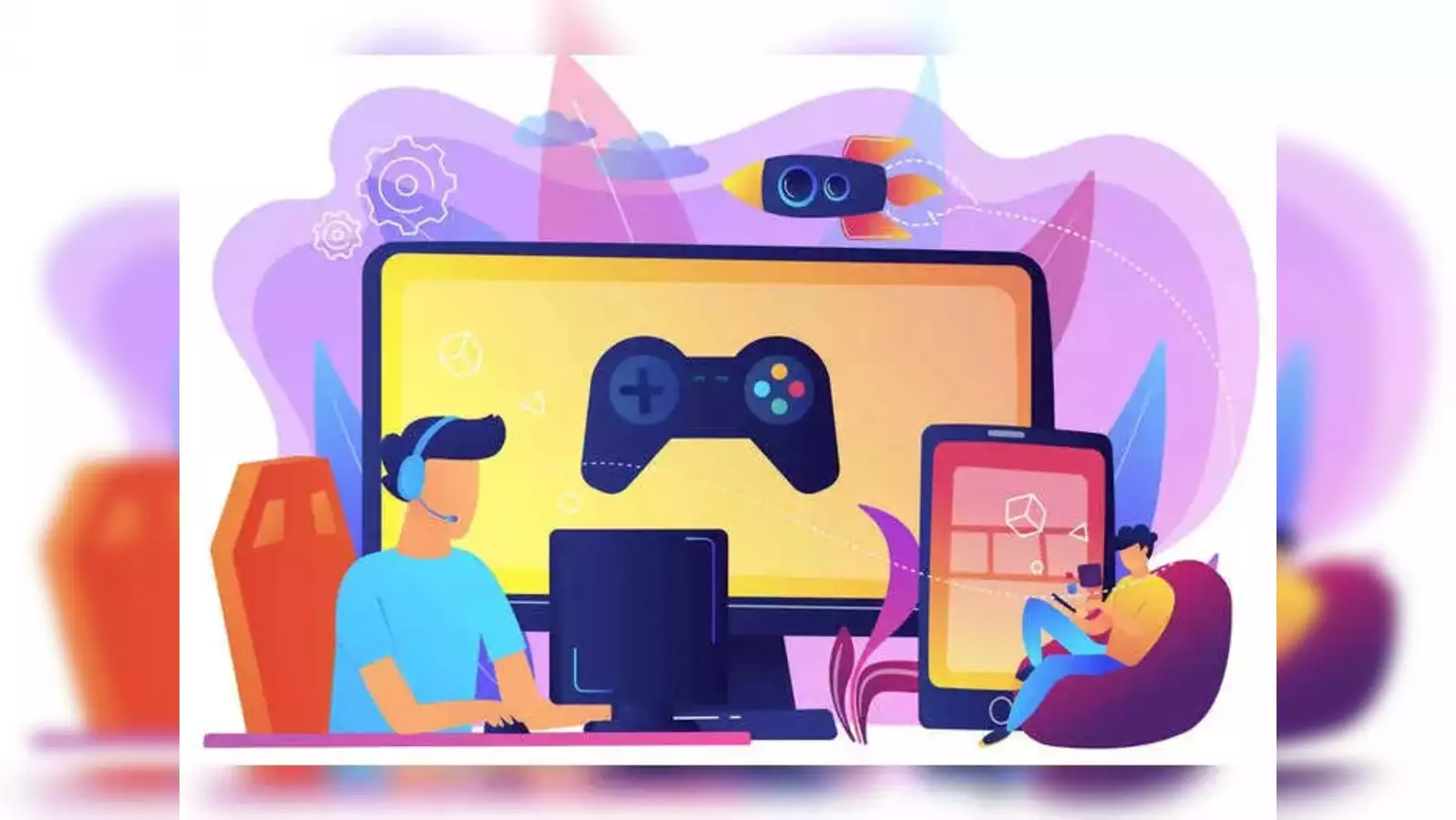Gaming Well: The topic of mental health has gained significant attention globally, and the gaming industry is often associated with negative stereotypes regarding mental health. However, research and statistics paint a different picture. Contrary to popular belief, the gaming industry is taking steps to prioritise mental health and well-being, addressing the stigma surrounding this issue. Studies show that gaming can have positive impacts on mental wellbeing, providing a unique space for experimentation, relaxation, and personal growth.
This article aims to explore the connection between video games and thriving mental health, highlighting the benefits and initiatives within the gaming industry. From the ability to fail without real-world consequences to the opportunity to embody aspirational roles and narratives, video games offer a safe and engaging environment for individuals to explore, learn, and develop resilience.
Moreover, the interactive nature of gaming can foster positive emotions, flow state, and a sense of accomplishment, all of which are critical components of the PERMA model of flourishing mental health. By delving into the healing power of video games, this article seeks to challenge the misconceptions surrounding the industry and showcase the potential for gaming to enhance mental well-being.
Whether it’s through virtual nature hikes, calming dialogues, or the supportive gaming community, the benefits of interactive entertainment are becoming increasingly clear. By embracing the power of gaming, individuals and the industry as a whole can work towards a future where mental health and digital recreation go hand in hand.
Gaming Well: Video Games as a Safe Space for Experimentation and Resilience
Video games can be more than just a form of entertainment – they can also serve as a safe space for experimentation and the development of resilience. By providing a controlled environment where players can fail without real-world consequences, games offer unique opportunities for learning and personal growth.

Failing Without Real-World Consequences
In many video games, players have the freedom to make mistakes and experience failure without facing the same repercussions they would in the real world. Whether it’s making the wrong dialogue choices in narrative-driven games or struggling to defeat a challenging boss. Players can simply reload their saved game and try again. This safe space to experiment and learn from mistakes can foster a growth mindset. Where setbacks are seen as opportunities for improvement rather than permanent failures.
Learning from Mistakes in a Controlled Environment
The controlled environment of video games allows players to learn from their mistakes in a low-stakes setting. As they navigate through the game’s challenges, they develop problem-solving skills. Strategic thinking, and a willingness to take calculated risks. This process of trial and error, facilitated by the game’s safe space. Can translate into increased resilience and the ability to handle setbacks more effectively in the real world.
By embracing the safe space for experimentation and the opportunities for learning from mistakes that video games provide. Players can cultivate valuable resilience and a growth mindset – both of which are essential for maintaining thriving mental health.
Gaming Well: Relaxation and Escapism Through Interactive Entertainment
In the fast-paced world we live in, it’s essential to find moments of calm and relaxation. Interestingly, video games can offer a respite from the stresses of everyday life. Serving as a form of interactive entertainment for mental wellbeing. While some games may be intense and fast-paced, there is a growing selection of relaxation through video games that can provide a sense of tranquility and video games as a form of escapism.
Games like A Short Hike invite players to explore a serene, natural environment at their own pace. Allowing them to unwind and immerse themselves in a peaceful virtual setting. The act of aimlessly wandering and discovering hidden collectibles can have a meditative quality. Soothing the mind and fostering a sense of calm. Similarly, titles such as Firewatch and Far from Noise offer captivating narratives and dialogues that encourage introspection. Providing a respite from the stresses of the real world.
“Video games have the power to transport us to different worlds, allowing us to escape the pressures of everyday life and find moments of relaxation and mental rejuvenation.”
By immersing themselves in these interactive entertainment experiences, players can disconnect from their daily concerns and engage in a form of video games as a form of escapism. The act of exploring, discovering, and interacting with these virtual environments can have a therapeutic effect, promoting relaxation through video games and contributing to overall mental wellbeing.
In a world that often feels overwhelming, video games can provide a much-needed respite, offering a space for relaxation through video games and video games as a form of escapism. By embracing the calming and introspective qualities of these interactive experiences, individuals can find a sense of balance and rejuvenation, fostering a healthier and more resilient mindset.
Gaming Well: Exploring the Ideal Self and Personal Growth
Video games have the remarkable ability to let players embody aspirational roles and narratives that align with their ideal self. According to research by Oxford Professor Dr. Andy Przybylski, people often engage with video games not to escape their problems, but rather to explore and inhabit characters and storylines that reflect their personal aspirations and values.
Embodying Aspirational Roles and Narratives
The opportunity to step into the shoes of heroic, influential, or successful characters can be a powerful avenue for video games and personal growth. Players can experiment with embodying aspirational roles in video games. Gaining a sense of mastery and control that may be lacking in their everyday lives. This virtual self-exploration can foster important aspects of video games and self-discovery. Such as developing a stronger sense of identity and purpose.
Fostering Self-Discovery and Identity Formation
The immersive nature of video games allows players to deeply engage with narratives and characters that resonate with their video games and ideal self. This virtual embodiment can spark meaningful self-reflection. Helping individuals uncover new facets of their personality and priorities. By inhabiting these aspirational roles and narratives, players can gain valuable insights into their video games and identity formation, ultimately contributing to their overall personal growth and mental wellbeing.
“People were not necessarily running away from their problems, but rather running towards their ideals when playing video games.”
– Dr. Andy Przybylski, Oxford University
The PERMA Model: Video Games and Flourishing Mental Health
Delve into the captivating intersection between video games and thriving mental health, as we explore the PERMA model – a groundbreaking framework that showcases the remarkable benefits of gaming. This innovative approach sheds light on how video games can foster positive emotions, enhance engagement. Strengthen relationships, infuse life with meaning, and cultivate a sense of accomplishment.
Positive Emotions and Enjoyment
Playing video games can be a powerful tool for boosting positive emotions and fostering enjoyment. The immersive nature of gaming allows individuals to relax, unwind, and experience a heightened sense of happiness and contentment. As players become absorbed in the virtual world, they can momentarily escape the stresses of daily life. Leading to a more joyful and fulfilling mental state.
Engagement and Flow State
The captivating design of video games can also induce a state of deep concentration and engagement. Known as the “flow state.” This optimal state of mind is characterized by a perfect balance between challenge and skill, where the player becomes fully immersed in the game. Experiencing a heightened sense of focus and a distorted perception of time. Engaging in this flow state can have a profoundly positive impact on mental wellbeing. Fostering a sense of accomplishment and personal growth.
Relationships and Social Connections
Contrary to popular belief, video games can actually facilitate the development of meaningful relationships and social connections. Online gaming communities provide a platform for individuals to interact, collaborate, and form lasting bonds with like-minded players. These virtual social interactions can fulfill the human need for belonging and emotional support. Contributing to overall mental health and resilience.
Meaning and Purpose
Interestingly, video games can also instill a sense of meaning and purpose in players’ lives. By working towards common goals, overcoming challenges. And earning in-game rewards, gamers can experience a profound sense of accomplishment and personal growth. This sense of purpose and meaning can translate to improved mental well-being. As individuals feel more fulfilled and empowered in their daily lives.

Accomplishments and Competence
Finally, the pursuit of goals and the achievement of in-game accomplishments can provide a profound sense of competence and mastery. As players conquer obstacles, unlock new levels, and receive recognition for their skills. They can experience a heightened sense of self-esteem and confidence. This positive feedback loop can contribute to a more resilient and thriving mental state. As individuals feel empowered and capable of overcoming challenges.
Exploring the PERMA model in the context of video games unveils the remarkable potential of gaming to support and enhance mental health and overall well-being. By harnessing the positive emotions, engagement, relationships, meaning, and accomplishments inherent in the gaming experience, individuals can unlock a path to flourishing and fulfilling mental health.


